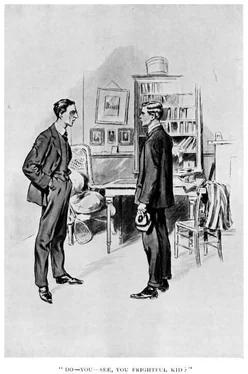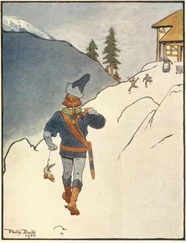Pelham Wodehouse - Mike
Здесь есть возможность читать онлайн «Pelham Wodehouse - Mike» весь текст электронной книги совершенно бесплатно (целиком полную версию без сокращений). В некоторых случаях можно слушать аудио, скачать через торрент в формате fb2 и присутствует краткое содержание. Жанр: Классическая проза, Юмористическая проза, на английском языке. Описание произведения, (предисловие) а так же отзывы посетителей доступны на портале библиотеки ЛибКат.
- Название:Mike
- Автор:
- Жанр:
- Год:неизвестен
- ISBN:нет данных
- Рейтинг книги:4 / 5. Голосов: 1
-
Избранное:Добавить в избранное
- Отзывы:
-
Ваша оценка:
- 80
- 1
- 2
- 3
- 4
- 5
Mike: краткое содержание, описание и аннотация
Предлагаем к чтению аннотацию, описание, краткое содержание или предисловие (зависит от того, что написал сам автор книги «Mike»). Если вы не нашли необходимую информацию о книге — напишите в комментариях, мы постараемся отыскать её.
Mike — читать онлайн бесплатно полную книгу (весь текст) целиком
Ниже представлен текст книги, разбитый по страницам. Система сохранения места последней прочитанной страницы, позволяет с удобством читать онлайн бесплатно книгу «Mike», без необходимости каждый раз заново искать на чём Вы остановились. Поставьте закладку, и сможете в любой момент перейти на страницу, на которой закончили чтение.
Интервал:
Закладка:
He sat there, with a curious feeling of having swallowed a heavy weight, hardly listening to what Mr. Downing was saying. Mr. Downing was talking rapidly to the headmaster, who was nodding from time to time.
Mike took advantage of a pause to get up. “May I go, sir?” he said.
“Certainly, Jackson, certainly,” said the Head. “Oh, and er—, if you are going back to your house, tell Smith that I should like to see him.”
“Yes, sir.”
He had reached the door, when again there was a knock.
“Come in,” said the headmaster.
It was Adair.
“Yes, Adair?”
Adair was breathing rather heavily, as if he had been running.
“It was about Sammy—Sampson, sir,” he said, looking at Mr. Downing.
“Ah, we know—. Well, Adair, what did you wish to say?”
“It wasn’t Jackson who did it, sir.”
“No, no, Adair. So Mr. Downing——”
“It was Dunster, sir.”
Terrific sensation! The headmaster gave a sort of strangled yelp of astonishment. Mr. Downing leaped in his chair. Mike’s eyes opened to their fullest extent.
“Adair!”
There was almost a wail in the headmaster’s voice. The situation had suddenly become too much for him. His brain was swimming. That Mike, despite the evidence against him, should be innocent, was curious, perhaps, but not particularly startling. But that Adair should inform him, two minutes after Mr. Downing’s announcement of Psmith’s confession, that Psmith, too, was guiltless, and that the real criminal was Dunster—it was this that made him feel that somebody, in the words of an American author, had played a mean trick on him, and substituted for his brain a side-order of cauliflower. Why Dunster, of all people? Dunster, who, he remembered dizzily, had left the school at Christmas. And why, if Dunster had really painted the dog, had Psmith asserted that he himself was the culprit? Why—why anything? He concentrated his mind on Adair as the only person who could save him from impending brain-fever.
“Adair!”
“Yes, sir?”
“What— what do you mean?”
“It was Dunster, sir. I got a letter from him only five minutes ago, in which he said that he had painted Sammy—Sampson, the dog, sir, for a rag—for a joke, and that, as he didn’t want any one here to get into a row—be punished for it, I’d better tell Mr. Downing at once. I tried to find Mr. Downing, but he wasn’t in the house. Then I met Smith outside the house, and he told me that Mr. Downing had gone over to see you, sir.”
“Smith told you?” said Mr. Downing.
“Yes, sir.”
“Did you say anything to him about your having received this letter from Dunster?”
“I gave him the letter to read, sir.”
“And what was his attitude when he had read it?”
“He laughed, sir.”
“ Laughed! ” Mr. Downing’s voice was thunderous.
“Yes, sir. He rolled about.”
Mr. Downing snorted.
“But Adair,” said the headmaster, “I do not understand how this thing could have been done by Dunster. He has left the school.”
“He was down here for the Old Sedleighans’ match, sir. He stopped the night in the village.”
“And that was the night the—it happened?”
“Yes, sir.”
“I see. Well, I am glad to find that the blame cannot be attached to any boy in the school. I am sorry that it is even an Old Boy. It was a foolish, discreditable thing to have done, but it is not as bad as if any boy still at the school had broken out of his house at night to do it.”
“The sergeant,” said Mr. Downing, “told me that the boy he saw was attempting to enter Mr. Outwood’s house.”
“Another freak of Dunster’s, I suppose,” said the headmaster. “I shall write to him.”
“If it was really Dunster who painted my dog,” said Mr. Downing, “I cannot understand the part played by Smith in this affair. If he did not do it, what possible motive could he have had for coming to me of his own accord and deliberately confessing?”
“To be sure,” said the headmaster, pressing a bell. “It is certainly a thing that calls for explanation. Barlow,” he said, as the butler appeared, “kindly go across to Mr. Outwood’s house and inform Smith that I should like to see him.”
“If you please, sir, Mr. Smith is waiting in the hall.”
“In the hall!”
“Yes, sir. He arrived soon after Mr. Adair, sir, saying that he would wait, as you would probably wish to see him shortly.”
“H’m. Ask him to step up, Barlow.”
“Yes, sir.”
There followed one of the tensest “stage waits” of Mike’s experience. It was not long, but, while it lasted, the silence was quite solid. Nobody seemed to have anything to say, and there was not even a clock in the room to break the stillness with its ticking. A very faint drip-drip of rain could be heard outside the window.
Presently there was a sound of footsteps on the stairs. The door was opened.
“Mr. Smith, sir.”
The old Etonian entered as would the guest of the evening who is a few moments late for dinner. He was cheerful, but slightly deprecating. He gave the impression of one who, though sure of his welcome, feels that some slight apology is expected from him. He advanced into the room with a gentle half-smile which suggested good-will to all men.
“It is still raining,” he observed. “You wished to see me, sir?”
“Sit down, Smith.”
“Thank you, sir.”
He dropped into a deep arm-chair (which both Adair and Mike had avoided in favour of less luxurious seats) with the confidential cosiness of a fashionable physician calling on a patient, between whom and himself time has broken down the barriers of restraint and formality.
Mr. Downing burst out, like a reservoir that has broken its banks.
“Smith.”
Psmith turned his gaze politely in the housemaster’s direction.
“Smith, you came to me a quarter of an hour ago and told me that it was you who had painted my dog Sampson.”
“Yes, sir.”
“It was absolutely untrue?”
“I am afraid so, sir.”
“But, Smith—” began the headmaster.
Psmith bent forward encouragingly.
“——This is a most extraordinary affair. Have you no explanation to offer? What induced you to do such a thing?”
Psmith sighed softly.
“The craze for notoriety, sir,” he replied sadly. “The curse of the present age.”
“What!” cried the headmaster.
“It is remarkable,” proceeded Psmith placidly, with the impersonal touch of one lecturing on generalities, “how frequently, when a murder has been committed, one finds men confessing that they have done it when it is out of the question that they should have committed it. It is one of the most interesting problems with which anthropologists are confronted. Human nature——”
The headmaster interrupted.
“Smith,” he said, “I should like to see you alone for a moment. Mr. Downing might I trouble—? Adair, Jackson.”
He made a motion towards the door.
When he and Psmith were alone, there was silence. Psmith leaned back comfortably in his chair. The headmaster tapped nervously with his foot on the floor.
“Er—Smith.”
“Sir?”
The headmaster seemed to have some difficulty in proceeding. He paused again. Then he went on.
“Er—Smith, I do not for a moment wish to pain you, but have you—er, do you remember ever having had, as a child, let us say, any—er—severe illness? Any—er— mental illness?”
“No, sir.”
“There is no—forgive me if I am touching on a sad subject—there is no—none of your near relatives have ever suffered in the way I—er—have described?”
Читать дальшеИнтервал:
Закладка:
Похожие книги на «Mike»
Представляем Вашему вниманию похожие книги на «Mike» списком для выбора. Мы отобрали схожую по названию и смыслу литературу в надежде предоставить читателям больше вариантов отыскать новые, интересные, ещё непрочитанные произведения.
Обсуждение, отзывы о книге «Mike» и просто собственные мнения читателей. Оставьте ваши комментарии, напишите, что Вы думаете о произведении, его смысле или главных героях. Укажите что конкретно понравилось, а что нет, и почему Вы так считаете.


